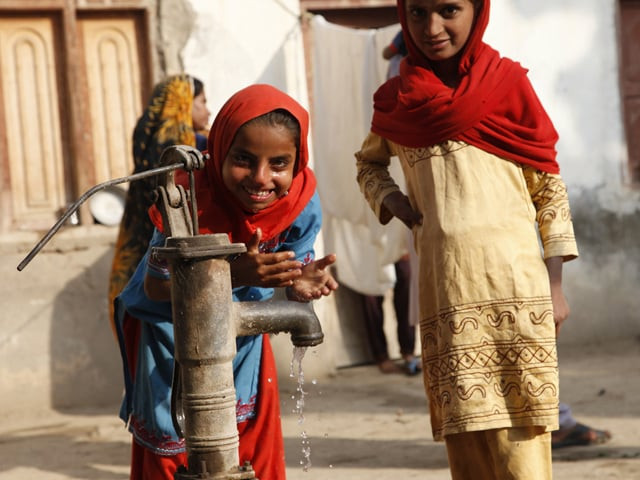Gastroenteritis kills two women, infects over 1,500
Contaminated drinking water blamed for spread of virus.

Two women have been dead, while over 1,500 have been registered with the local health department, as reports of gastroenteritis (gastro) have been confirmed from various parts of Khyber-Pakhtunkhwa (K-P). The local authorities confirmed the death of two women. However, they refused to disclose the names of the deceased.
According to the health department and local villagers, the disease broke out in Kailag village in Kholian Bala last week, affecting 1,500 residents including women and children of all ages.
Health Executive District Officer Dr Mazhar Ali told The Express Tribune that two women, aged between 30 and 45, have died of the disease. “The waterborne disease is widespread in the village and every third house has been affected by it,” he added.
He explained that more than 500 households in the village are reported to have a patient suffering from the disease, while around 350 families have more than one victim.
He claimed that the situation was under control and all patients suffering from dehydration had been treated. “All necessary initiatives have been taken and the patients are recovering fast. We are still checking whether the deaths of the two women were due to gastro or not. The fact that no more deaths have been reported in the village speaks volumes about the performance of health department,” he remarked.
He further said that the disease was first reported in Havelian in Abbottabad, from where it reached Kailag village. The main reason behind the spread of the virus was due to contaminated water. “Since villagers have been using water collected in an open tank during the spring season, the chances of contamination are very high,” he explained. “Even though hand pumps for potable water are present, these pumps are also open to contamination, which results in the development of gastroenteritis,” he added.
He went on to explain that even though the report on water samples sent to National Institute of Health was yet to be obtained, the chances of water containing fecal coliform bacteria (a bacteria found in solid human waste) was very high, given the current situation.
He also said that a fully equipped mobile team of doctors and paramedical staff had been deployed in the village, which was taking care of patients, besides spreading awareness about hygiene in the area. He advised the villagers to use boiled water, and contact doctors if they feel the onset of nausea, vomiting or high fever.
Published in The Express Tribune, June 26th, 2011.



















COMMENTS
Comments are moderated and generally will be posted if they are on-topic and not abusive.
For more information, please see our Comments FAQ